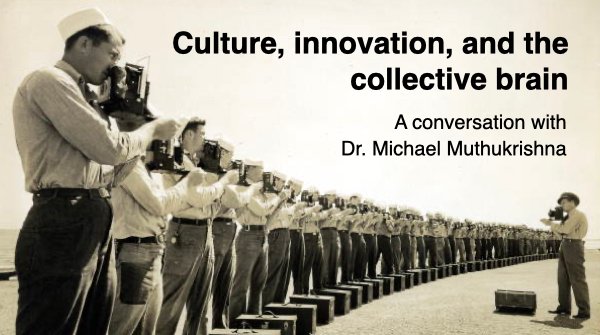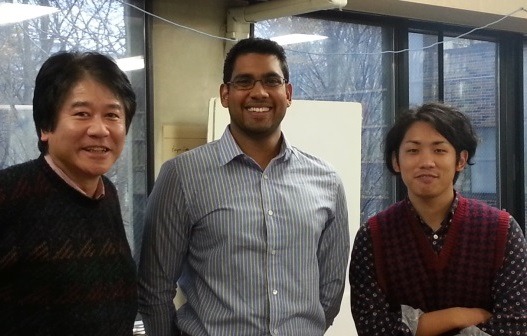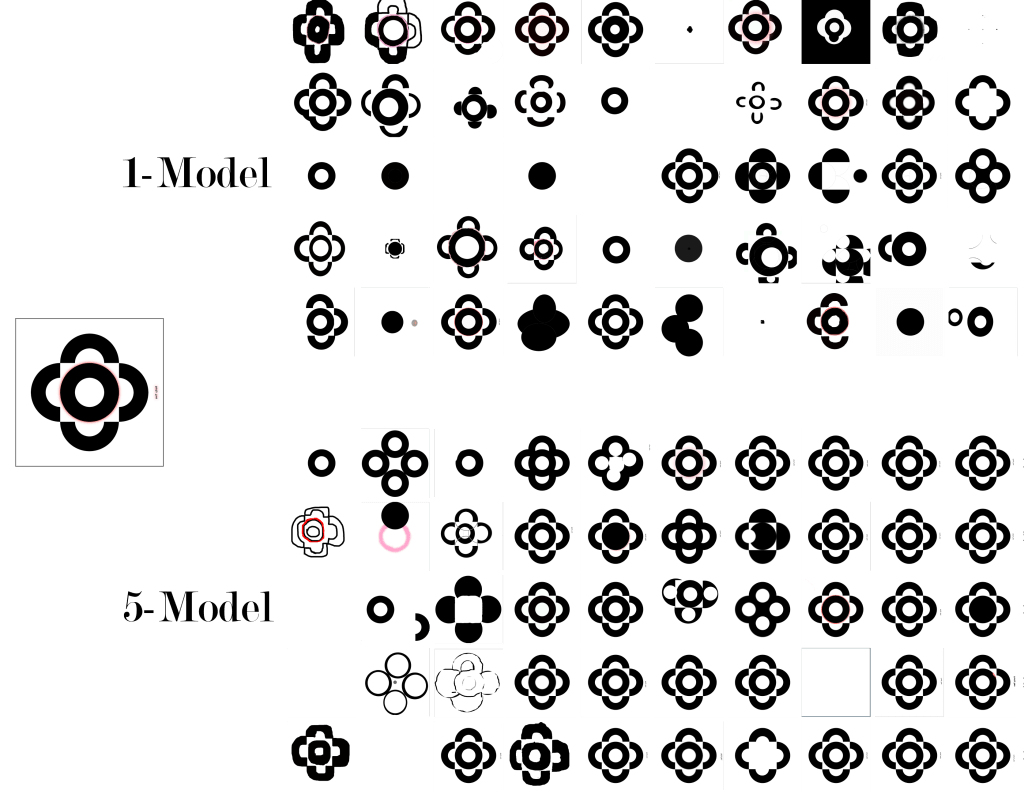I had a fun, far-reaching, free-ranging conversation about my research and research motivations with Kensy Cooperrider on Many Minds.
Listening options:
Description
Today’s episode is a conversation with Dr. Michael Muthukrishna, an Associate Professor of Economic Psychology at the London School of Economics.
Michael’s research takes on a suite of topics that all start from a single big question: Why are we so different from other animals? Part of the answer has to do with our neural hardware. There’s no question we’ve got big brains—and Michael has some cool things to say about why they may have gotten so big. But Michael is just as focused on our cultural software—the tools and ideas we develop, tweak, share, and accumulate over time. You might say he’s more impressed by our collective brains than by our individual brains. To study all this, Michael builds formal theories and computational models; he runs experiments; and he constructs and analyzes huge databases.
We cover a lot of ground in this episode. We talk about the finding that the size and interconnectedness of a social group affects the cultural skills that group can develop and maintain. We consider what actually powers innovation (hint: it’s not lone geniuses). We discuss how diversity is a bit double-edged and why psychology needs to become a historical science. And that, my friends, is hardly all—we also touch on cetaceans, religious history, and spinning plates.
I’ve been hoping to have Michael on the show for months now. His work is deeply theoretical, advancing the basic science of what it means to be human. But it’s also engaged with important practical issues—issues like corruption and cultural diversity. Without further ado, here’s my conversation with Dr. Michael Muthukrishna. Enjoy!
A transcript of this show will be available soon.
Notes and links
4:30 – An introduction to “dual inheritance theory.”
11:00 – A 2013 paper by Dr. Muthukrishna and colleagues about the relationship between sociality and cultural complexity.
12:15 – A paper on the loss of cultural tools and traditions in the Tasmanian case.
21:20 – A 2016 paper by Dr. Muthukrishna and Joseph Henrich on innovation and the collective brain.
28:30 – The original paper on the notion of cultural “tightness” and “looseness.”
30:20 – A recent short piece by Dr. Muthukrishna on the paradox of diversity.
34:50 – A 2019 popular piece of mine on the phenomenon of “global WEIRDing.”
40:27 – The so-called Flynn Effect refers to the puzzling rise of IQ scores over time. It is named after James Flynn, who died only weeks ago.
42:30 – A paper about the significance of Luria’s work on abstract reasoning in Uzbekistan.
50:26 – A paper on the “cultural brain hypothesis,” the subject of Dr. Muthukrishna’s dissertation.
51:00 – A paper on brains as fundamentally “expensive.”
58:00 – Boyd & Richardson, mentioned here, have authored a number of highly influential books. The first of these was Culture and the Evolutionary Process.
59:35 – A 2015 paper on head size and emergency birth interventions.
1:01:20 – The stylized model we mention here is discussed and illustrated in this lecture from the 2020 Diverse Intelligences Summer Institute.
1:03:15 – The paper by Dr. Muthukrishna and colleagues on cetacean brains and culture.
1:11:38 – The paper by Dr. Muthukrishna and colleagues on ‘Psychology as a Historical Science.’
1:14:00 – The 2020 paper by Dr. Muthukrishna and colleagues introducing a tool for the measurement of cultural distance.
1:20:20 – Dr. Muthukrishna is part of the team behind the Database of Religious History.
1:24:25 – The paper by Dr. Muthukrishna and Joe Henrich on ‘The Origins and Psychology of Human Cooperation.’
Dr. Muthukrishna’s end-of-show reading recommendations:
Joseph Henrich, The Secret of Our Success & The WEIRDest People in the World
Matt Ridley, How Innovation Works
Matthew Syed, Rebel Ideas
You can keep up with Dr. Muthukrishna’s work at his personal website and on Twitter (@mmuthukrishna).
Many Minds is a project of the Diverse Intelligences Summer Institute (DISI) (https://www.diverseintelligencessummer.com/), which is made possible by a generous grant from the Templeton World Charity Foundation to UCLA. It is hosted and produced by Kensy Cooperrider, with creative support from DISI Directors Erica Cartmill and Jacob Foster, and Associate Director Hilda Loury. Our artwork is by Ben Oldroyd (https://www.mayhilldesigns.co.uk/). Our transcripts are created by Sarah Dopierala (https://sarahdopierala.wordpress.com/).
You can subscribe to Many Minds on Apple, Stitcher, Spotify, Pocket Casts, Google Play, or wherever you like to listen to podcasts.
We welcome your comments, questions, and suggestions. Feel free to email us at: manymindspodcast@gmail.com.
For updates about the show, follow us on Twitter: @ManyMindsPod.














